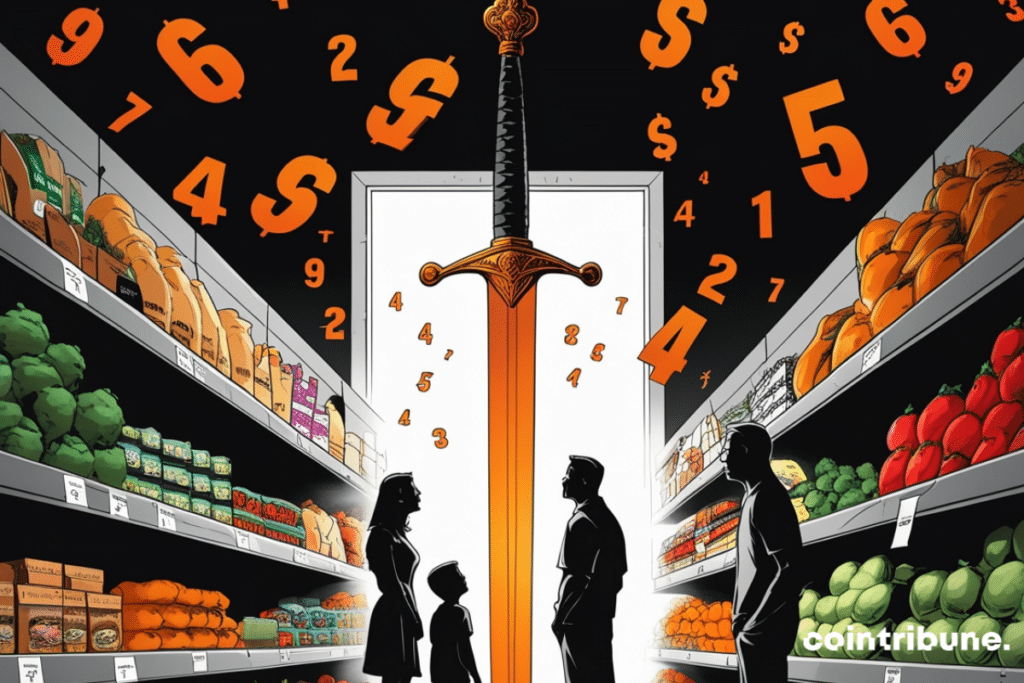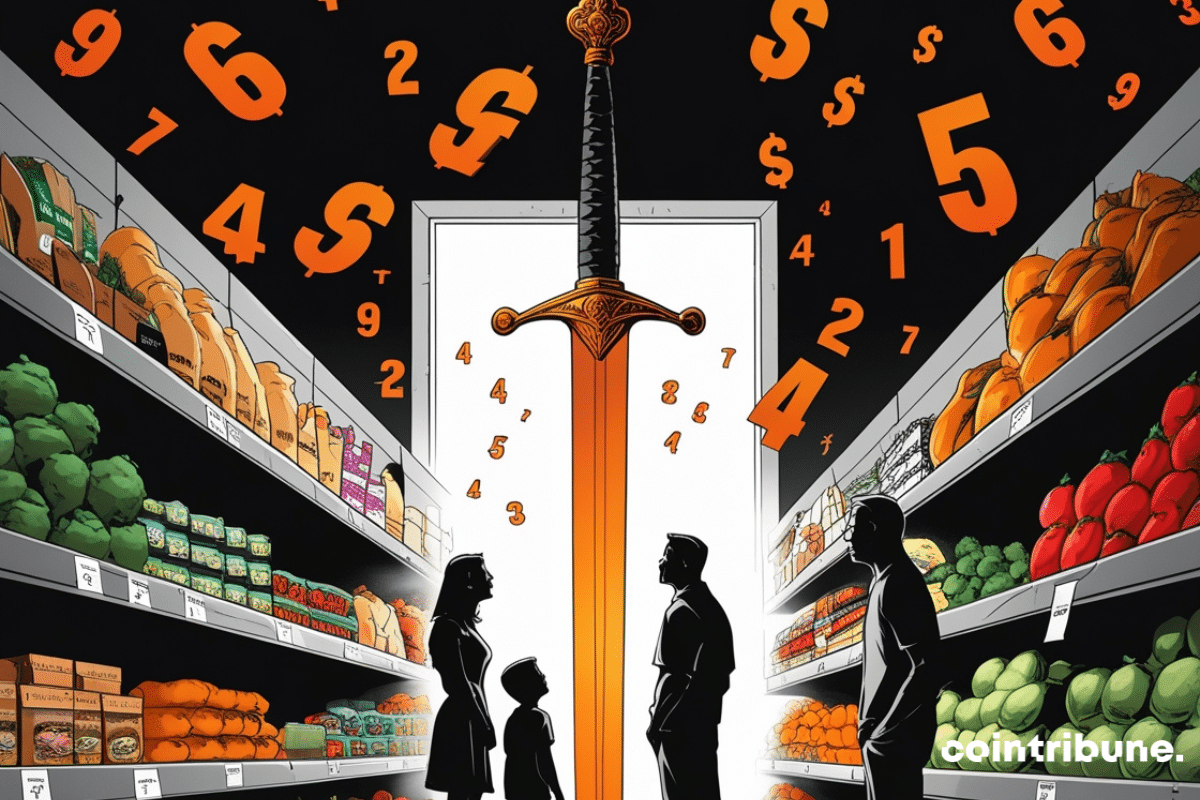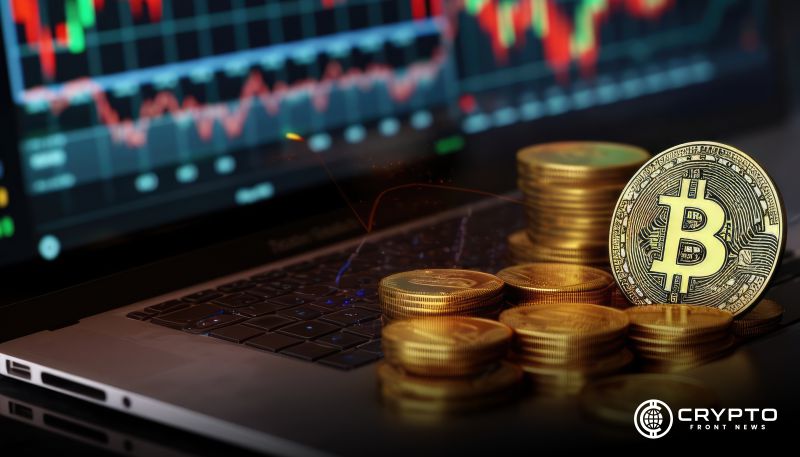16h35 ▪
4
min read ▪ by
Rampant inflation, unpredictable interest rates, looming unemployment, and a declining purchasing power: this is the economic menu awaiting households at the beginning of the year. While Americans scrutinize every price variation with palpable anxiety, Fed experts debate the way forward. In the background, a robust labor market and a freshly elected president: the cocktail is explosive.


Inflation: a sword of Damocles hanging over consumers
The specter of inflation continues to loom over American households. According to a WalletHub survey, 56% of Americans designate it as their number one financial concern for 2025. Not surprising when the inflation rate, measured by the personal consumption expenditure index excluding food and energy, has remained stuck between 2.6% and 2.8% since last May.
56% of Americans say inflation is their biggest financial concern for 2025, according to WalletHub’s new survey. Check out the rest of the survey results: https://t.co/tflJ5xnJoJ #resolutions #money pic.twitter.com/W7Wu18q3VB
— WalletHub (@wallethub) December 17, 2024
And yet, Thomas Barkin, president of the Richmond Fed, does not seem ready to back down. “I prefer to stay restrictive longer,” he confided in Baltimore.
Behind this cautious stance lies a fear: that of a price surge fueled by rising wages and still robust consumption. The reelection of Donald Trump, coupled with his tariff threats and restrictive immigration policies, could also increase the bill.
Some key factors maintaining this pressure:
- A domestic demand that remains robust despite rate hikes;
- Uncertainty surrounding the economic policies of the new administration;
- A possible transmission of costs to consumers through higher prices;
- A labor market that leans more towards hiring than layoffs.
In short, consumers are walking on a tightrope, caught between rising prices and interest rates that refuse to fall.
The American economy under tension: the risky bet of the Fed
The American economy continues to play with investors’ nerves. While the Fed’s benchmark rates were lowered to 4.33% at the end of last year, causing a drop in the crypto market occasionally, the debate rages on about the duration of this restrictive policy. For Thomas Barkin, maintaining high rates is a necessity to avoid another inflationary flare-up. But is it sustainable?


The labor market, often seen as an economic barometer, remains surprisingly robust. Barkin predicts more hires than layoffs, which could fuel wage pressures and thus prices. On the business side, optimism seems to prevail, driven by promises of tax cuts and business-friendly policies.
But the economy is not just about paper-thin indicators. Behind the numbers, cracks are beginning to show. The United States’ dependence on foreign capital, especially from China and Japan, raises concerns. Abra Global CEO Bill Barhydt highlights a structural problem: the declining appeal of U.S. bonds, coupled with a colossal debt that the state struggles to refinance.
I fear everyone has it wrong on treasuries. The FED has lowered rates but treasury rates are spiking. Why? I believe this is likely NOT about inflation. The era of low interest rates may be over. The markets are demanding that big government be replaced with right sized… pic.twitter.com/GKrcUIO3pH
— Bill Barhydt (@billbarX) December 28, 2024
Experts fear a vicious circle where high rates, meant to combat inflation, end up stifling growth. In the meantime, Americans are keeping a close eye on their wallets, hoping the Fed finally finds a balance.
For Donald Trump, it is clear: the Fed is the main brake on the American economy. He advocates for a rate cut, but the Fed chair, Jerome Powell, refuses to listen, waving the banner of independence. Between political standoffs and economic uncertainties, the year 2025 looks set to be a true economic battleground.
Maximize your Cointribune experience with our “Read to Earn” program! For every article you read, earn points and access exclusive rewards. Sign up now and start earning benefits.
La révolution blockchain et crypto est en marche ! Et le jour où les impacts se feront ressentir sur l’économie la plus vulnérable de ce Monde, contre toute espérance, je dirai que j’y étais pour quelque chose
DISCLAIMER
The views, thoughts, and opinions expressed in this article belong solely to the author, and should not be taken as investment advice. Do your own research before taking any investment decisions.










